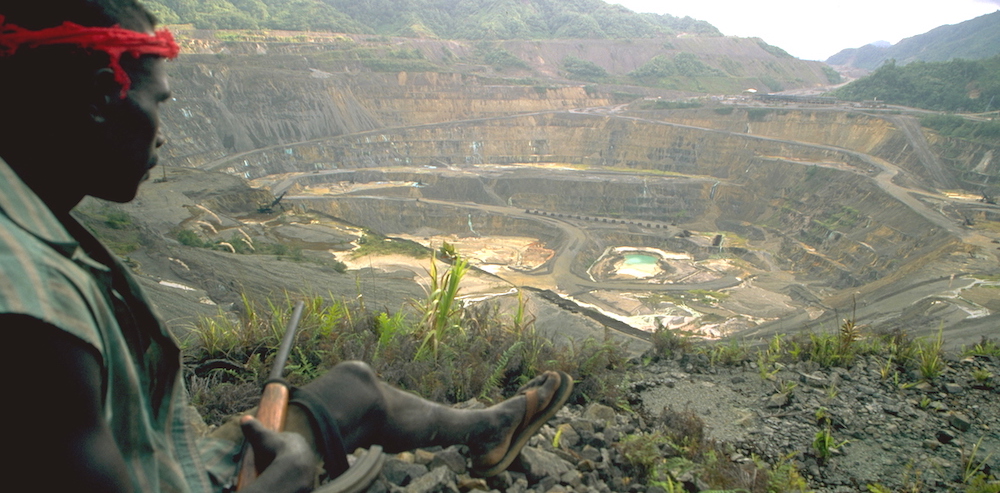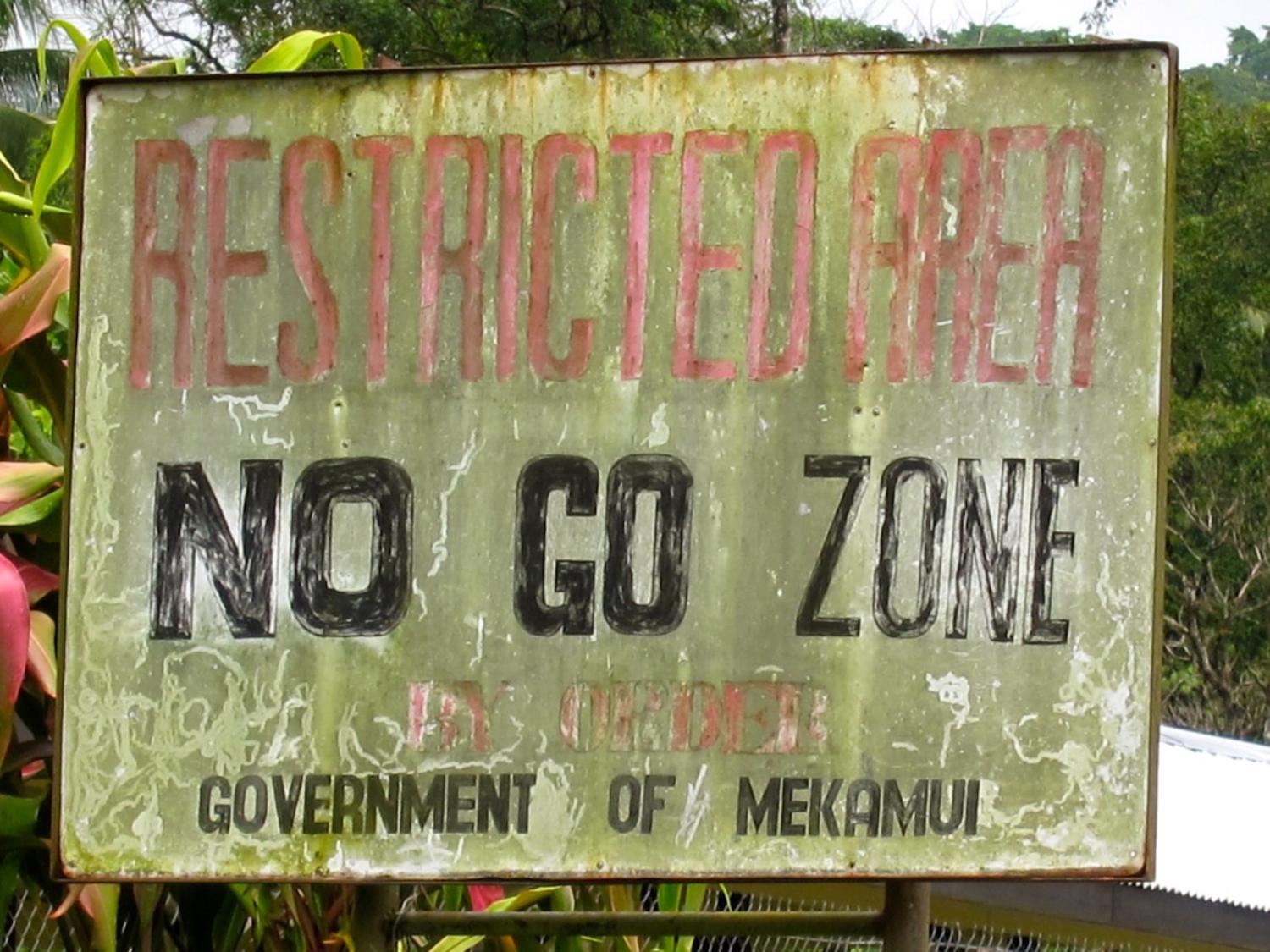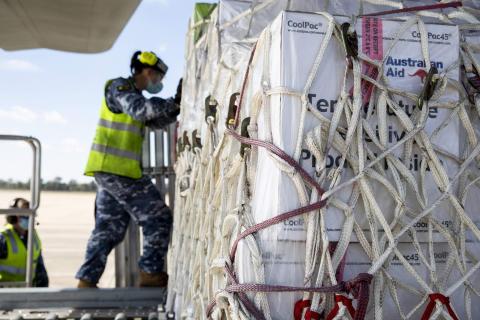The ABC Managing Editor Asia Pacific, Kellie Mayo, has subsequently disputed aspects of this article; read her response here.
Bougainville – the autonomous region of Papua New Guinea which suffered a brutal 10-year civil conflict in the 1990s – was due to have a referendum in June to decide if it would separate from PNG. But because funding and arrangements for the plebiscite were well behind schedule, the voting date has now been postponed to October.
Does this matter beyond PNG? One would think so. This referendum is a celebrated element of the 2001 Peace Agreement that finally brought the bloodshed to a close and could result in Bougainville becoming another independent but under-developed, economically struggling small island state in the Pacific, with a population of 350,000 people.
Judging by Australia’s recent media coverage of this volatile rich island, it is just about invisible.
If it achieves independence, this small archipelago just over 1000 kilometres from Cairns will have as its legacy a still festering internal debate about the future of its fabulous mining wealth that was at the heart of the conflict that claimed around 20,000 lives. And whether independent or not, Bougainville remains an area of intense geo-political interest for Australia particularly as other nations, including China, seek to access that fabulous wealth.
Yet judging by Australia’s recent media coverage of this volatile rich island, it is just about invisible aside from some reporting in the business media about Australian mining interests in Bougainville. All this is doubly strange, given it’s not as though nothing has been happening.

In a year not yet four months old, there has been a flurry of discombobulating developments already in 2019 in what was already set to be an important year for Bougainville. These threaten to impact on Bougainville’s ability to weather the political and massive economic challenges ahead.
The year began with the Autonomous Bougainville Government (ABG) and a landowners’ group in Panguna, the site of the copper and gold mine which was at the heart of the conflict, publicly opposing each other’s preferences for the mining companies they would like to see re-opening the mine.
Separately, concerns were raised in January about the delays in funding to prepare for the forthcoming referendum, at that stage still scheduled for June. Then the ABG announced that it would change its mining laws to accommodate a West Australian mining investor. A subsequent and surprising announcement from the ABG revealed its intention to establish its own company to re-open Panguna mine in the hope of solving its financial problems. That plan was met by outrage among landowners living around the mine and more widely.
By February, the Bougainville Referendum Commission, chaired by former Irish prime minister Bertie Ahern, concluded that the commission and Bougainville wouldn’t be ready to hold the vote in June and sought a deferral. That delay was confirmed by the ABG and PNG’s national government on 1 March. Four days later, New Zealand was asked to lead a regional support mission to assist with security during the referendum, now scheduled to start on 12 October.
The mining issue continued to simmer into March and April with the WA-based mining developer making assurances that it would work with the ABG to find a solution for the closed mine. Around this time, an important reconciliation ceremony took place bringing together Bougainville President, John Momis, representing the ABG, and Mekamui separatists. This coming together with the once militant faction is a vital step in cementing Bougainville-wide unity in the lead up to the referendum for independence. And as part of the preparations for the October vote, the United Nations initiated a “roadshow” with Bougainville president, the UN resident coordinator in PNG and the national parliament’s Minister of Bougainville travelling around the archipelago to explain what the referendum was all about.
In short, it’s been a newsworthy few months.
Given the parochialism of Australia’s domestic mainstream media, the lack of attention is probably not surprising although it is disappointing. But that shouldn’t be the case for the ABC and in particular Radio Australia’s service to the Pacific. Perhaps it’s their search engine’s fault in not capturing all their own stories, but a search of ABC’s coverage of Bougainville shows no news stories since January 2018. Radio Australia, as should be expected, has so far this year had 25 stories. But this pales when compared to RNZ Pacific which since the beginning of the year had almost three times that number of stories. So comprehensive is RNZ Pacific’s coverage that reading the entries on their search engine provides a readily accessible, reliable and up-to-date narrative of Bougainville.
This paucity of coverage by the ABC of one of the most important running stories in the Pacific is despite the fact that according to the ABC itself, PNG and the Pacific comprise a target audience group for its international broadcasting services. Answering the question of why there is so little coverage compared to its Tasman cousin could be a matter of budget. The ABC only makes available $11 million a year for its international services out of its total budget of $865.5 million. Yet RNZ’s total budget is around NZ$42 million and that includes funding for both its domestic and international services.
So if money isn’t the answer, what is?

